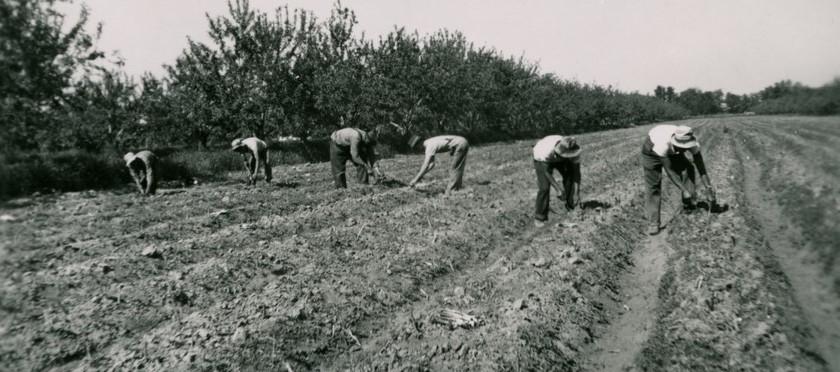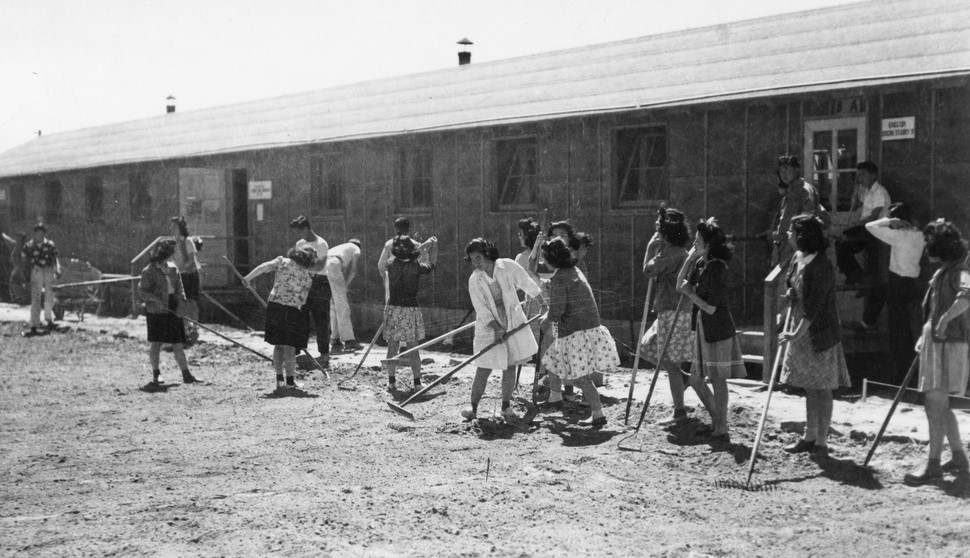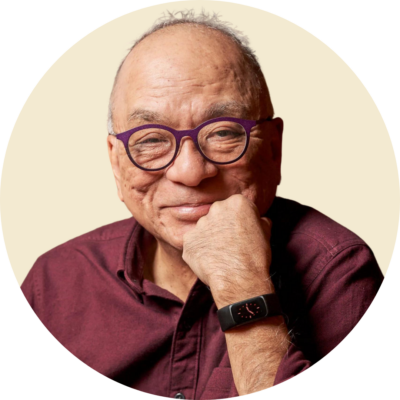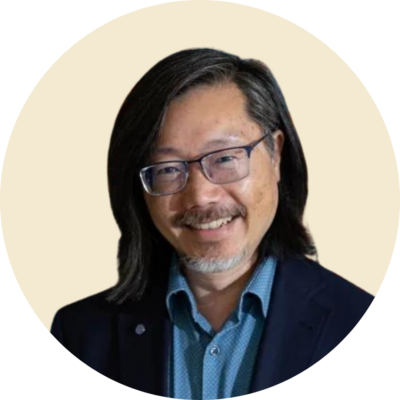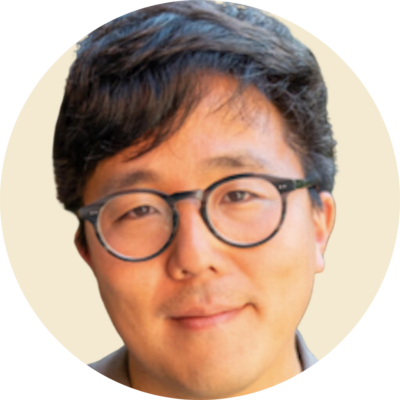Donate
As a community-driven non-profit, our work to preserve our history and share the lessons of our past is only possible thanks to the generosity of supporters like you! We invite you to invest in the future of Densho and partner with us as we preserve stories of the past for the generations of tomorrow. Thanks to a generous matching grant, donations made in support of our virtual fundraiser will be matched dollar for dollar up to $10,000.
Featured Speakers
Speaker
Frank Abe most recently edited a new anthology with Floyd Cheung of "The Literature of Japanese American Incarceration" (Penguin Classics).
He is lead author of a graphic novel on Japanese American resistance to wartime incarceration, "We Hereby Refuse," a Finalist in Creative Nonfiction for the Washington State Book Awards, in collaboration with Tamiko Nimura, Ross Ishikawa, and Matt Sasaki. He won an American Book Award for "JOHN OKADA: The Life & Rediscovered Work of the Author of No-No Boy" (University of Washington Press, 2018), co-edited with Greg Robinson and Floyd Cheung, and with Shannon Gee made the award-winning PBS documentary, "Conscience and the Constitution," on the largest organized camp resistance. He blogs at Resisters.com. He’s now developing a new stage adaptation of "No-No Boy."
With writer Frank Chin, Abe helped organize the first-ever “Day of Remembrance” in 1978, and together they invented a new Japanese American tradition by producing car caravans and media events in Seattle and Portland that publicly dramatized the campaign for redress. “Days of Remembrance” are now observed as an annual event wherever Japanese Americans live. He was an original member of Chin’s Asian American Theater Workshop in San Francisco, studied at the American Conservatory Theater, and was featured as an incarceration camp leader in John Korty’s 1976 NBC-TV movie, Farewell to Manzanar.
Abe worked as a reporter and editor for KIRO Newsradio in Seattle, and served as communications director for King County (Washington) Executives Gary Locke and Dow Constantine, and the Metropolitan King County Council, and a communications aide for Executive Ron Sims.
He is lead author of a graphic novel on Japanese American resistance to wartime incarceration, "We Hereby Refuse," a Finalist in Creative Nonfiction for the Washington State Book Awards, in collaboration with Tamiko Nimura, Ross Ishikawa, and Matt Sasaki. He won an American Book Award for "JOHN OKADA: The Life & Rediscovered Work of the Author of No-No Boy" (University of Washington Press, 2018), co-edited with Greg Robinson and Floyd Cheung, and with Shannon Gee made the award-winning PBS documentary, "Conscience and the Constitution," on the largest organized camp resistance. He blogs at Resisters.com. He’s now developing a new stage adaptation of "No-No Boy."
With writer Frank Chin, Abe helped organize the first-ever “Day of Remembrance” in 1978, and together they invented a new Japanese American tradition by producing car caravans and media events in Seattle and Portland that publicly dramatized the campaign for redress. “Days of Remembrance” are now observed as an annual event wherever Japanese Americans live. He was an original member of Chin’s Asian American Theater Workshop in San Francisco, studied at the American Conservatory Theater, and was featured as an incarceration camp leader in John Korty’s 1976 NBC-TV movie, Farewell to Manzanar.
Abe worked as a reporter and editor for KIRO Newsradio in Seattle, and served as communications director for King County (Washington) Executives Gary Locke and Dow Constantine, and the Metropolitan King County Council, and a communications aide for Executive Ron Sims.
Speaker
Floyd Cheung is a professor of English language and literature and American studies and the founding chair of the Five College Asian/Pacific/American Studies Certificate Program. His scholarship focuses on the interpretation and recovery of early Asian American texts, and he has published several articles about and edited multiple volumes by forgotten and lesser-known authors. In 2012, he was awarded Smith’s Sherrerd Prize for Distinguished Teaching. From 2014 to 2019, Cheung served as the director of the Sherrerd Center for Teaching and Learning.
As vice president of the Office for Equity and Inclusion, Cheung leads Smith College’s initiatives to improve equity and inclusion for all students, staff and faculty. He is committed to developing within the community a growth mindset regarding inclusion work, acknowledging and addressing the emotional dimensions of equity and inclusion, and collaborating with everyone at Smith because inclusion results from communal effort and is everyone’s responsibility. Born in Hong Kong, Cheung grew up in Las Vegas. He is also a published poet.
As vice president of the Office for Equity and Inclusion, Cheung leads Smith College’s initiatives to improve equity and inclusion for all students, staff and faculty. He is committed to developing within the community a growth mindset regarding inclusion work, acknowledging and addressing the emotional dimensions of equity and inclusion, and collaborating with everyone at Smith because inclusion results from communal effort and is everyone’s responsibility. Born in Hong Kong, Cheung grew up in Las Vegas. He is also a published poet.
Speaker
I am a comparativist who works primarily in Japanese and English with additional interests in Spanish and Portuguese. I approach the study of Asian American literature (and literatures of Asia and the Americas) with special attention to the generative frictions within and among multiple languages.
My research focuses on the literature of Japanese diasporas in the Americas as well as queer and critical theoretical approaches to the study of literary genre, gendered embodiment, and generational time. I am the translator of "Lament in the Night" (Kaya Press 2012), a collection of two novels by Shōson Nagahara, an author who wrote for a Japanese reading public in Los Angeles during the 1920s. I am also completing a manuscript entitled "A Queer, Queer Race: Orientations for the Lost Generation of Japanese/American Literature." This book examines Japanese and English language texts written by Shōson, Sadakichi Hartmann, Arishima Takeo, and Yoné Noguchi—authors who resided in the United States between the opening of mass Japanese emigration in 1885 and the ban on Japanese immigration imposed by the Immigration Act of 1924.
Since 2021, I have served as one of two scholar-editors for the Issei Poetry Project at the Japanese Community and Cultural Center (JACCC - Los Angeles). I have also been working on translations of early Japanese American drama -- most recently in the form of a (2022) staged reading of Nagahara Hideaki's 1928 play "Sariyukumono (The Ones Who Leave)."
Prior to joining the faculty of UC Berkeley in 2018, I was an assistant professor of English and Asian Languages and Cultures at Northwestern University (2012-2018). I received my Ph.D. in Comparative Literature (English, Japanese, Spanish) from UC Berkeley in 2012, and completed my B.A. in Comparative Literature (English, Spanish, Mathematics) at Dartmouth College in 2003.
I have taught courses on 19th and 20th century Japanese literature, American literature, Asian American literature, modernist literature in Asia, international law and literature, manga and graphic novels, and Westerns and Japanese period drama.
My research focuses on the literature of Japanese diasporas in the Americas as well as queer and critical theoretical approaches to the study of literary genre, gendered embodiment, and generational time. I am the translator of "Lament in the Night" (Kaya Press 2012), a collection of two novels by Shōson Nagahara, an author who wrote for a Japanese reading public in Los Angeles during the 1920s. I am also completing a manuscript entitled "A Queer, Queer Race: Orientations for the Lost Generation of Japanese/American Literature." This book examines Japanese and English language texts written by Shōson, Sadakichi Hartmann, Arishima Takeo, and Yoné Noguchi—authors who resided in the United States between the opening of mass Japanese emigration in 1885 and the ban on Japanese immigration imposed by the Immigration Act of 1924.
Since 2021, I have served as one of two scholar-editors for the Issei Poetry Project at the Japanese Community and Cultural Center (JACCC - Los Angeles). I have also been working on translations of early Japanese American drama -- most recently in the form of a (2022) staged reading of Nagahara Hideaki's 1928 play "Sariyukumono (The Ones Who Leave)."
Prior to joining the faculty of UC Berkeley in 2018, I was an assistant professor of English and Asian Languages and Cultures at Northwestern University (2012-2018). I received my Ph.D. in Comparative Literature (English, Japanese, Spanish) from UC Berkeley in 2012, and completed my B.A. in Comparative Literature (English, Spanish, Mathematics) at Dartmouth College in 2003.
I have taught courses on 19th and 20th century Japanese literature, American literature, Asian American literature, modernist literature in Asia, international law and literature, manga and graphic novels, and Westerns and Japanese period drama.
Densho Executive Director
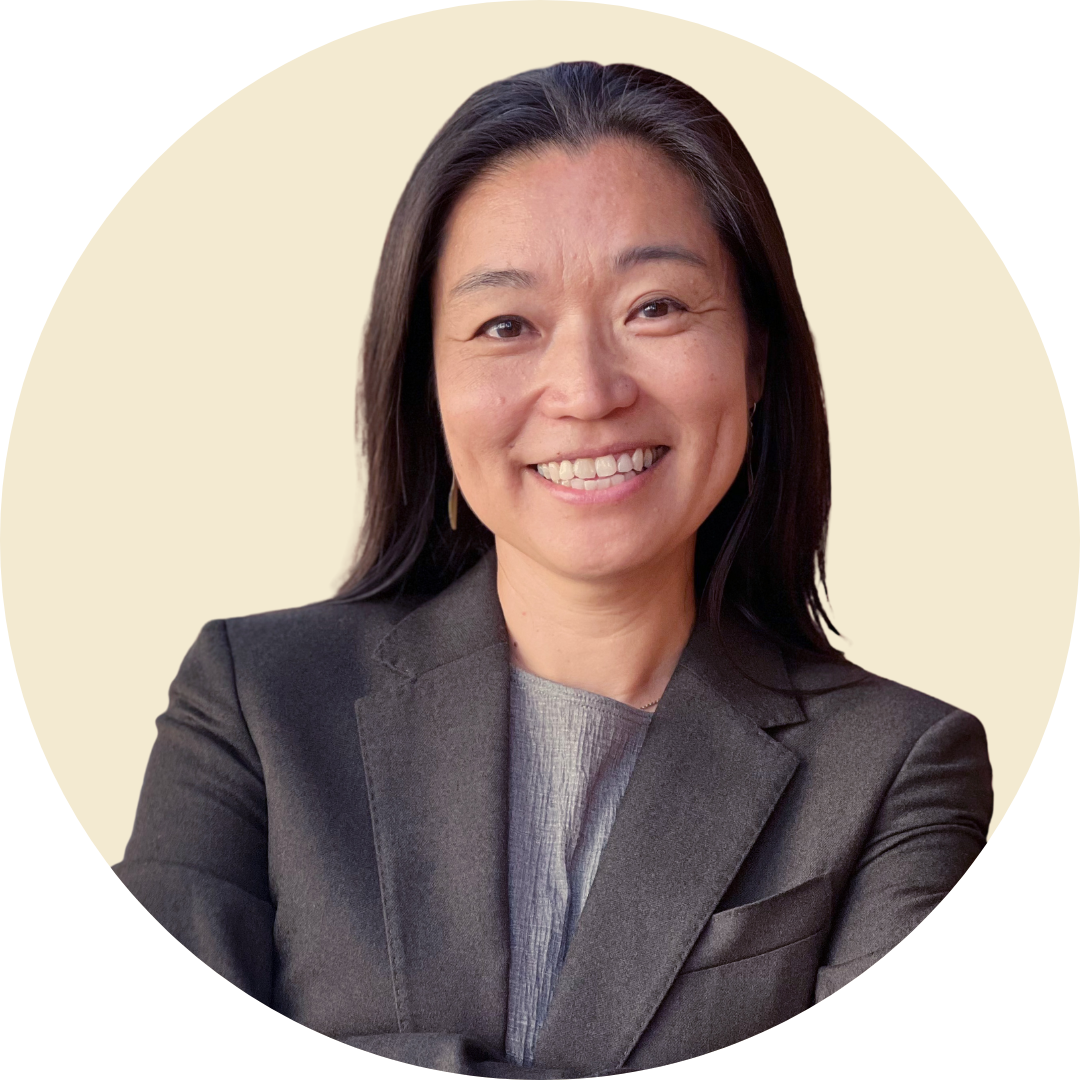
Naomi Ostwald Kawamura
Densho Executive Director
Naomi Ostwald Kawamura is the Executive Director of Densho. Born and raised in San Diego, California, Naomi holds a Bachelor of Fine Arts from the University of Washington, a Master’s degree from Harvard Graduate School of Education, and a Ph.D. in Education from the University of British Columbia. Her scholarly research focuses on cultural memory practices in Japanese American and Japanese Canadian communities and she has contributed as a guest editor and author in peer-reviewed journals and editions. Prior to Densho, Naomi was the Executive Director of the Nikkei Place Foundation, a Japanese Canadian organization based in British Columbia. She has held leadership positions at the San Diego History Center, the Museum Education Roundtable, and BAVC Media, among others.
Founding Executive Director
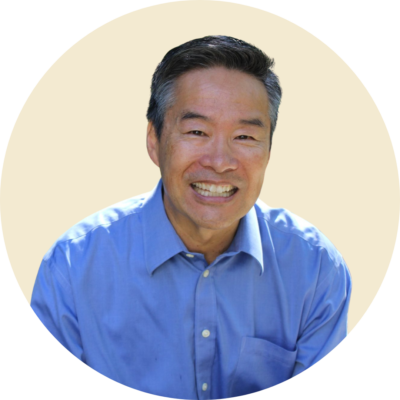
Tom Ikeda
Founding Executive Director
Tom Ikeda (he/him) is the founding Executive Director of Densho. Tom is a sansei (third generation Japanese American) who was born and raised in Seattle. Tom’s parents and grandparents were incarcerated during World War II at Minidoka, Idaho. In addition to leading the organization for 26 years, Tom has conducted more than 250 video-recorded, oral history interviews with Japanese Americans. Prior to working at Densho, Tom was a General Manager at Microsoft Corporation in the Multimedia Publishing Group. Tom has received numerous awards for his community and historical contributions, including the Humanities Washington Award for outstanding achievement in the public humanities, the National JACL Japanese American of the Biennium Award, the Microsoft Alumni Integral Fellows Award, the Japanese American National Museum Founder’s Award, and the Robert Gray Medal from the Washington State Historical Society.
Moderator
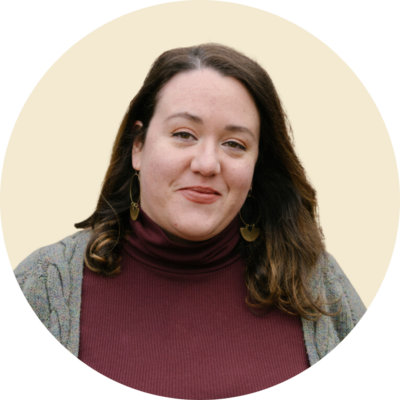
Nina Wallace
Moderator
Nina is a yonsei who grew up in Phoenix but has lived in Seattle long enough to call it home. She is a graduate of Seattle University with a degree in English and Philosophy, and has worked in a variety of community-building and youth development programs in addition to her work at Densho. Her family was not subject to incarceration during WWII because they lived outside the West Coast “exclusion zone,” but Nina’s great-grandfather was arrested and detained by the FBI. Nina helps to manage Densho’s social media, blog, press relations, and community outreach.
